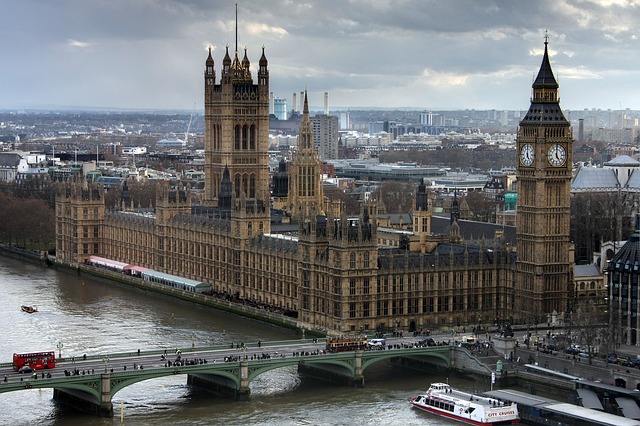England: New planning rules to ‘turbocharge’ brownfield housing development

Large city councils in England will be told to prioritise brownfield development under a major shake-up to planning rules which aims to boost housebuilding while protecting the Green Belt.
As part of the measures, the UK Government has announced that every council in England will instructed to be less bureaucratic and more flexible in applying policies that halt housebuilding on brownfield land.
The bar for refusing brownfield plans will also be made much higher for big city councils that fail to hit locally agreed housebuilding targets. Planning authorities in England’s 20 largest cities and towns will be made to follow a ‘brownfield presumption’, if housebuilding drops below expected levels.
Analysis published as part of the London Plan Review suggests that new brownfield presumption in the capital could potentially result in up to 11,500 additional homes per year.
Housing secretary Michael Gove said the reforms will further support developers aiming to undertake major regeneration on brownfield sites, giving them more certainty by ensuring their plans are not unnecessarily blocked or held up by red tape.
A consultation on these proposals has now been launched and will run until Tuesday 26 March. The government plans to introduce these changes in London and will look to implement these changes to national planning policy as soon as possible.
Meanwhile, legislation laid in Parliament today will extend current permitted development rights, so that commercial buildings of any size will have the freedom to be converted into new homes – this means shops, offices, and other buildings all quickly repurposed, resulting in thousands of quality new homes by 2030.
Also, homeowners will also be empowered to extend their homes outwards and upwards, as the government also launched a consultation on proposals that would see more new extensions or large loft conversions freed from requiring planning permission.
Prime minister Rishi Sunak said: “We pledged to build the right homes in the right places – protecting our precious countryside and building more in urban areas where demand is highest. Today’s package is us delivering on that.
“We are sticking to our plan and are on track to meet our commitment to deliver one million homes over the course of this Parliament, and the changes announced today will deliver the right mix of homes across England.”
Housing secretary Michael Gove said: “Today marks another important step forward in our Long-Term Plan for Housing, taking a brownfield first approach to deliver thousands of new homes where people want to live and work, without concreting over the countryside.
“Our new brownfield presumption will tackle under delivery in our key towns and cities – where new homes are most needed to support jobs and drive growth.”
Welcoming the measures, David Thomas, chief executive at Barratt Developments, said: “We welcome any efforts to make it easier to get planning permission, particularly for brownfield regeneration which is already naturally a more complicated and capital-intensive process. Industry and local and national government need to work together to find ways of delivering more new homes more quickly, including on previously developed land, and this is a positive step.”
The Federation of Master Builders (FMB) said while the proposals to reform planning rules to increase building on brownfield land, and to place further requirements on local councils who are failing to build enough new homes, are positive steps – they must look beyond just cities to solve the housing crisis.
Brian Berry, chief executive of the FMB said: “House building rates have fallen flat, and urgent action will be necessary in order to deliver the volume of homes that Britain needs. I welcome the Government’s proposals to make it easier for permission to be granted for building on brownfield sites, and the planned requirements for local councils to be less bureaucratic in preventing house building. But we must take these ambitions beyond the big cities.
“Small house builders must be at the heart of these plans, not just major developers. Brownfield sites are the mainstay sites of small builders, helping to rejuvenate run-down sites back into high quality housing. But we must also look beyond big cities and at the type of homes being delivered. There is a lack of affordable housing in the countryside, where small house builders once thrived. There are a wealth of brownfield sites outside of our major cities, but they are often overlooked in local plans, this must be addressed.”
Gavin Smart, CIH’s chief executive, said: “We agree urgent action is needed to tackle the housing crisis and boost supply.
“Brownfield regeneration and bringing existing buildings back into use has the potential to play an important role in meeting our national housing need. But while the number of new homes is important so is their quality and safety. The permitted development regime bypasses usual planning processes and in recent years has led to some incredibly poor-quality homes which should not have been built. Government promises that there will be protections to prevent this are encouraging, but the detail here will be very important if we are not repeat these mistakes.”
A spokesperson for the Home Builders Federation added: “Whilst we welcome any moves to bring land through for development more quickly, this consultation announcement will do little to tackle our housing crisis.
“If we are to reverse the sharp falls in housing supply we are now seeing, we need some serious joined-up policies, not tinkering around the edges.”









